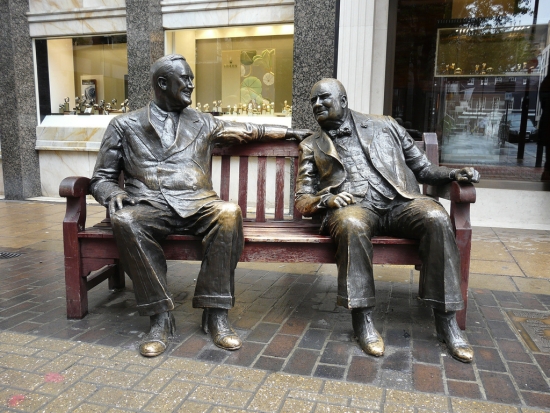The wealthiest shopping street in Britain – Bond Street – is to undergo its first overhaul in 30 years as part of a drive to keep the area ahead of international shopping rivals in Hong Kong, Milan and New York.

The new Bond Street Development Group has drawn up a £20m plan to regenerate the historic West End area – including a new “grand entrance” to the street, the introduction of seating, and the launch of a concierge shopping service.
The project is being headed by Beverley Aspinall, who ran luxury department store Fortnum & Mason for seven years and spent 25 years at John Lewis.
Aspinall said: “In terms of the best luxury shopping area in the country, it’s not good enough. We need to stay ahead of the international alternatives where they (shoppers) could shop instead.”
Aspinall wants to improve the appearance of Bond Street by removing unnecessary signs, correcting uneven pavements, improving the landscaping with plants, moving bike racks at the entrance of the street and reducing the amount of delivery vans.
She also wants to design a “grand entrance” at the junction where Old Bond Street meets Piccadilly, across the road from The Ritz hotel and adjacent to the Royal Academy of Arts.
Some of the world’s biggest luxury brands are situated on Bond Street, including Burberry, Cartier, Louis Vuitton, Longchamp and Alexander McQueen. Premier department store Fenwick has been based on the street since 1891.
Rents on the most luxurious part of the street have passed £1,000 per sq ft, placing it among the most expensive shopping streets the world.
Such rents have been reached following a boom in demand for luxury brands driven by spending from Chinese tourists.
The overhaul of Bond Street is designed to ensure that tourists from China, and other key locations such as the Middle East and Russia, continue to be attracted to the shopping area.
The development group, formed by the New West End Company, has worked on the plans with Transport for London and Westminster City Council.
A portion of the funding will come from the retailers on the street, who backed the original plans when they were presented at a meeting last month.
However, Aspinall also wants a slice of the money to come from the public purse, which is expected to raise eyebrows given the money generated by retailers on the street.
She said: “We wouldn’t want it (the state) to be sole funder but there is an awareness that a luxury quarter is really important as a tourist draw. We have to maintain that.”
Aspinall has drawn up an outline plan for the transformation of Bond Street by 2018, designed to coincide with the opening of Crossrail, a development that is projected to bring an extra 70,000 visitors to the area every day.
However, despite the emphasis on international visitors and the threat to Bond Street from international rivals, Aspinall says the overhaul of Bond Street is also aimed at the office workers in the area and British shoppers.
Previous Post
Hovis Workers Strike over Zero Hours Contracts